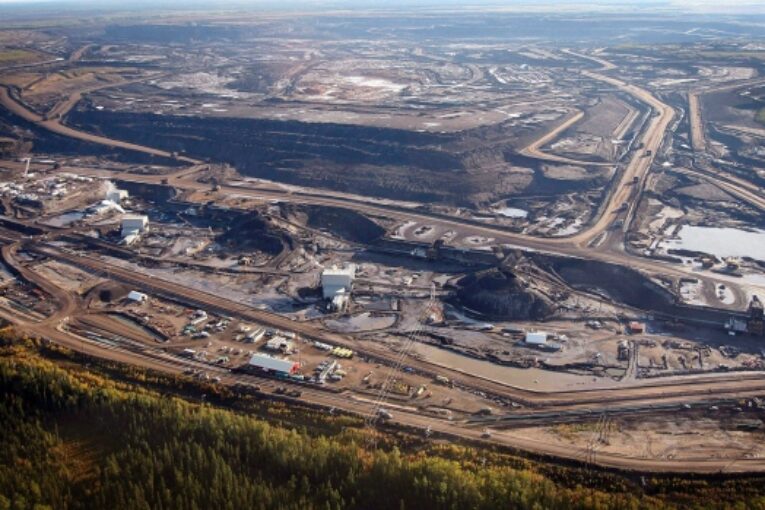
[ad_1]
CALGARY – Canada’s biggest oilsands companies say they will spend $16.5 billion before 2030 on a massive proposed carbon capture and storage facility that is the centrepiece of their net-zero-by-2050 pledge.
The Pathways Alliance, a consortium of the country’s six largest oilsands companies, said Friday it will also spend an additional $7.6 billion on other emissions reductions projects, for a total of around $24.1 billion.
The announcement comes as Canada’s oil and gas industry has been under fire from environmental groups who say not enough of the record profits being reaped this year due to sky-high oil prices are being funneled into decarbonization.
Last month, a report from environmental think-tank the Pembina Institute said Canada’s oil and gas sector is estimated to earn a profit of $152 billion in 2022 due to the war in Ukraine and the resulting commodity price boom. The report criticized the industry for not moving faster to meet its climate commitments in light of its windfall profits.
Federal Environment Minister Steven Guilbeault has also said he wants to see more details from industry on what it is doing with its profits to achieve its emissions-reduction targets.
“If they don’t make those investments while they’re making record-level profits, then when would it be a good time for them to make those investments?” Guilbeault said in a September interview. “If not now, then I don’t know when.’’
The Pathways Alliance has not yet made a final investment decision on the project, which would capture CO2 emissions from more than 20 oilsands facilities in northern Alberta and store them safely underground, delivering an estimated 10 million tonnes of emissions reductions per year.
But it says it has already completed pre-engineering work and is consulting with Indigenous communities along the route of the proposed 400-km pipeline that would carry captured CO2 to the storage hub. The group says it has also completed nine carbon capture feasibility studies involving member companies at oil sands sites.
Earlier this year, the federal government announced an investment tax credit for carbon capture and storage (CCS) that will enable companies to claim a tax credit of up to 60 per cent for direct air capture projects and 50 per cent for all other eligible carbon capture projects. A 37.5 per cent tax credit is available for investment in equipment for carbon transportation, storage and use.
But oilsands CEOs have said more government support will be necessary to make the building and operating of such expensive, cutting-edge technology economical.
“A CCS project of this size is a huge undertaking that requires significant up-front work and a strong partnership between industry and government to proceed,” said Kendall Dilling, president of Pathways Alliance, in a news release.
The industry has also said the government’s overall targets for the oil and gas sector are unrealistic. While the Pathways Alliance has said it believes it can reduce greenhouse gas emissions from production by 22 million tonnes by 2030 — an approximate 30 per cent reduction from current levels — the federal government wants Canada’s oilpatch to reduce by 42 per cent below 2019 levels.
That would bring total emissions from the sector to 110 million tonnes by 2030, down from 191 million tonnes in 2019. They haven’t been that low in more than three decades.
“We continue to work with the federal and Alberta governments to ensure Canada’s co-funding programs and regulatory environment for CCS are globally competitive and that emissions reduction targets for our industry are realistic and achievable,“ Dilling said Friday.
“In parallel, we’re progressing work to make sure we’re ready to make an investment decision and start building as soon as the necessary financial and regulatory conditions are in place.”
The Pathways Alliance is made up of member companies Canadian Natural Resources Ltd., Cenovus Energy Inc., ConocoPhillips Canada, Imperial Oil Ltd., MEG Energy Corp., and Suncor Energy Inc.
The group says it plans to apply for regulatory approval for its CO2 transportation line and storage network in late 2023. It says it could begin injecting carbon as early as 2026.
This report by The Canadian Press was first published Oct. 14, 2022.
[ad_2]
You can read more of the news on source



